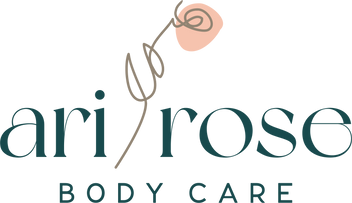Can Water in Skin Care be Dangerous?
Drinking water is essential for our bodies to stay hydrated, aiding in digestion and circulation. Consuming water is also known to keep your skin from becoming too dry or flaky. However, water is a questionable ingredient that you may want to think twice about having in your body care products.
Here’s the rundown.
Water in products allows for mold, bacteria, and fungal growth. In order to keep this from happening, cosmetic companies must add preservatives to their product.
If a product uses water, preservatives are essential to combat the growth of harmful microorganisms. Otherwise, the product is a breeding ground for these microorganisms which puts your health at risk. There are various types of preservatives, some more dangerous than others.
The problem is that many preservatives can be irritating for the skin. Particularly for individuals with dry, sensitive skin, or those suffering from conditions such as eczema. According to dermveda.com, “Methylparaben and butylparaben are common examples of preservatives found in many skin care products and cosmetics to prevent them from going bad or growing bacteria. However, they can cause inflammation in some people with eczema prone skin. Other examples of preservatives that can irritate the skin include phenoxyethanol, chlorphenesin, benzoic acid, and formaldehyde-containing ingredients such as imadozolidinyl urea.”
Preservatives are imperative but when it comes to you or your families skin, do you really want to lather up with washes or creams filled with synthetic ingredients that may compromise your health? The choice is yours.
When deciding to make body care products for my own family, I knew I wanted to stay far away from preservatives. This is why Ari Rose products are free of water. No water = no need for preservatives. Although I’ve had customer’s ask me to add other types of products to the line such as shampoo, conditioner, body wash or lotion, for example, these types of products include water. I couldn’t compromise my values or product quality in order to make more money. Ari Rose Signature Soaps, Luxurious Skin Frostings, SOL Glow Exfoliant, and My Little Secret® are free of water, preservatives, emulsifiers (chemicals used to bind oils and water), along with fragrances, dyes, or any synthetic ingredients whatsoever.
A product that uses preservatives can be easily identified by looking at the ingredient label. If they’re not listed, simply look to see if the ingredient list includes water? If so, there must be preservatives added. Do your research to determine what you will and will not accept in your body care products. What are you willing to put on your body's largest organ -- the skin.
Some of the most harmful preservatives and added ingredients to look out for in your cosmetics are listed below shared from Gillian Deacon’s 2011 book There’s Lead in Your Lipstick: Toxins in Our Everyday Body Care and How to Avoid Them. However, this short list only scratches the surface of the many more harmful ingredients added to skin/body care products.
Coal Tar: A known carcinogen banned in the EU, but still used in North America. Used in dry skin treatments, anti-lice and anti-dandruff shampoos, also listed as a color plus number, i.e. FD&C Red No. 6.
DEA/TEA/MEA: Suspected carcinogens used as emulsifiers and foaming agents for shampoos, body washes, soaps.
Ethoxylated surfactants and 1,4-dioxane: Never listed because it’s a by-product made from adding carcinogenic ethylene oxide to make other chemicals less harsh. The Environmental Working Group (EWG) has found 1,4-dioxane in 57 percent of baby washes in the U.S. Avoid any ingredients containing the letters "eth."
Formaldehyde: Probable carcinogen and irritant found in nail products, hair dye, fake eyelash adhesives, shampoos. Banned in the EU.
Fragrance/Parfum: A catchall for hidden chemicals, such as phthalates. Fragrance is connected to headaches, dizziness, asthma, and allergies.
Hydroquinone: Used for lightening skin. Banned in the UK, rated most toxic on the EWG’s Skin Deep database, and linked to cancer and reproductive toxicity.
Lead: Known carcinogen found in lipstick and hair dye, but never listed because it’s a contaminant, not an ingredient.
Mercury: Known allergen that impairs brain development. Found in mascara and some eyedrops.
Mineral oil: By-product of petroleum that’s used in baby oil, moisturizers, styling gels. It creates a film that impairs the skin’s ability to release toxins.
Oxybenzone: Active ingredient in chemical sunscreens that accumulates in fatty tissues and is linked to allergies, hormone disruption, cellular damage, low birth weight.
Parabens: Used as preservatives, found in many products. Linked to cancer, endocrine disruption, reproductive toxicity.
Paraphenylenediamine (PPD): Used in hair products and dyes, but toxic to skin and immune system.
Phthalates: Plasticizers banned in the EU and California in children’s toys, but present in many fragrances, perfumes, deodorants, lotions. Linked to endocrine disruption, liver/kidney/lung damage, cancer.
Placental extract: Used in some skin and hair products, but linked to endocrine disruption.
Polyethylene glycol (PEG): Penetration enhancer used in many products, it’s often contaminated with 1,4-dioxane and ethylene oxide, both known carcinogens.
Silicone-derived emollients: Used to make a product feel soft, these don’t biodegrade, and also prevent skin from breathing. Linked to tumour growth and skin irritation.
Sodium lauryl (ether) sulfate (SLS, SLES): A former industrial degreaser now used to make soap foamy, it’s absorbed into the body and irritates skin.
Talc: Similar to asbestos in composition, it’s found in baby powder, eye shadow, blush, deodorant. Linked to ovarian cancer and respiratory problems. Known to disrupt the immune and endocrine systems, and fetal development, it’s used in nail and hair products. Often hidden under fragrance.
